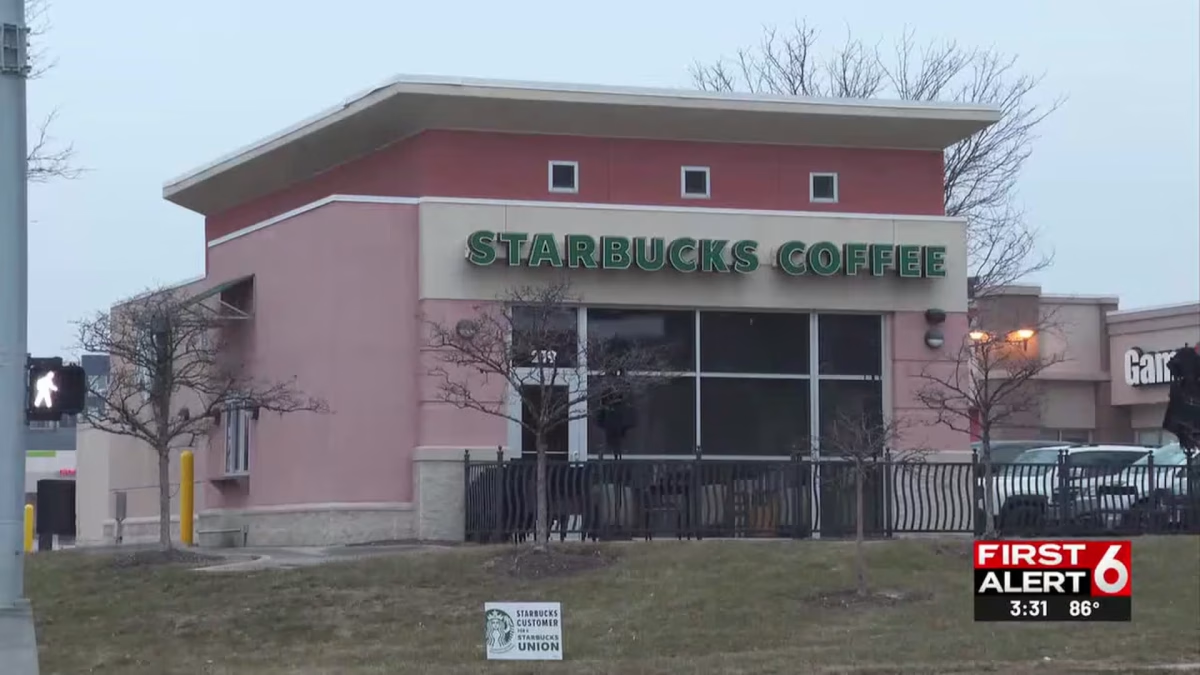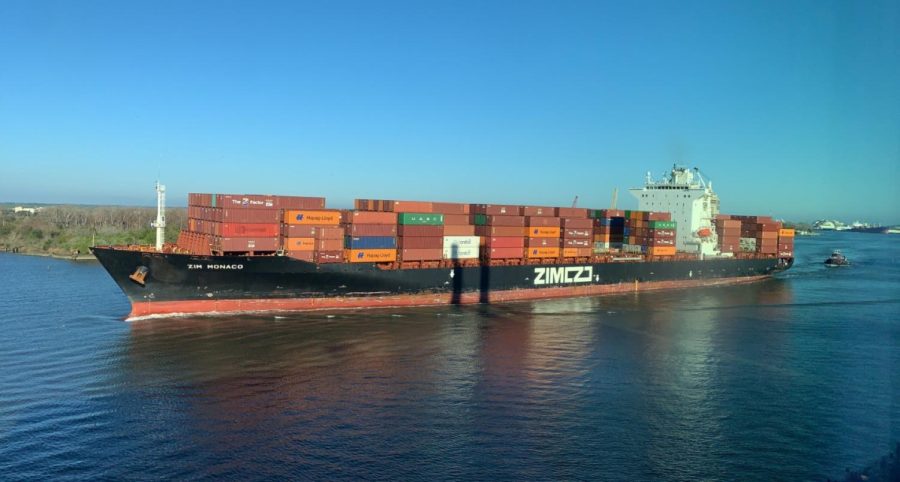The Shipping News
How delays in the movement of goods and people are hitting close to home.
A large ship arrives in the Port of Savannah off the coast of Georgia.
In the fall of 2021, the English Department was awarded a grant from the Saxena Foundation to convert a room on the fourth-floor of Worthington Hall into a modular learning space and to be used as a de-centered, collaborative writing classroom. The department made plans to remove all of the traditional front-facing desks from W413 and add a variety of tables and seating that would give students space to spread out, work together, and function creatively. However, it’s now approaching the end of January 2022, almost a full year since plans were made and furniture ordered, and the room still looks the same as it did at the start of the school year. So what gives?
The answer to this question involves immense complexities of international shipping routes, overburdened ports, labor shortages on ships and highways, backlogged orders, and a global pandemic that’s now entering its third year of upending the movement of people and goods around the world.
Christopher Mims, a technology reporter for The Wall Street Journal and author of the recently published book Arriving Today: From Factory to Front Door—Why Everything Has Changed About What and How We Buy (Harper Collins, 2021), makes clear that the main issue causing problems in the shipping world is the ongoing pandemic, but he also insists that the pandemic has largely exposed a number of very serious problems that existed well before the spring of 2020. Mr. Mims refers to this shipping crisis as a “supply shock,” which is caused by a shortage of goods, stemming from the current shipping processes in place. The pandemic represented the impetus of this shock, and the consequences are laid out in vivid detail throughout Mr. Mims’ book, such as when he revisits the sense of crisis that burgeoned in March 2020: “There will be a run on beans and eggs and milk. Hand sanitizer and disinfectant wipes will become so valuable that black markets for them arise overnight, penetrating the national consciousness.”

Unfortunately, there has been significant disruptions to the livelihoods of many across the world due to the ongoing shipping crisis. In an email interview with Mr. Mims, he explained that while the pandemic has created the shipping crisis we are currently experiencing, it has also revealed enduring issues with the supply chain such as it has also revealed enduring issues with the supply chain such as the lack of “slack in the system,” the “exploitation of warehouse workers and long-haul truckers,” and “tensions with unions over automation and modernization of ports.” Essentially, although the pandemic may be the root cause of the shipping crisis, there are also many pervasive, long standing factors contributing to its severity. In some ways, it’s almost as if the trade war that got so much press during the previous presidency had come to fruition—the world just took a different route to get there. “It turns out dealing with a pandemic requires some of the same measures as dealing with a trade war,” according to Mr. Mims.
Trade war or pandemic, the end result for many businesses, especially small businesses, has been a considerable inconvenience and hardship during the past year in particular. The global reach of the pandemic, and thus the crisis in moving goods around the world, has become a regular topic for the national news media. Within the Omaha community, local businesses have been affected by shipping delays as well. One such business is Artemis Tea & Botanical, a store in the Blackstone District that specializes in herbalist blends that support well-being and nourishes the relationship between humans and plants. An interview with Artemis Tea & Botanical’s founder and Clinical Herbalist, Andrea Lawse revealed how these shipping issues hit close to home: “We have had numerous instances of teas that have been caught up in ports in Los Angeles, even teas from Germany. The main teas we’re having issues with are from China and Japan. There can be a three or four month delay on teas.” Ms. Lawse elaborated that due to shipping issues she’s had to “think ahead to the worst case scenario” in the even that she is unable to acquire even some of the more basic items she needs for her business, such as to-go cups.

Our interview with Ms. Lawse underscored how easy it is to take for granted the myriad ways that the shipping industry affects every part of our lives, and that a lesson from the pandemic ought to be that we can ill afford to take this issue for granted in the future. For instance, the ripple effects of even a single item being unavailable can be felt far and wide. At Artemis Tea & Botanical, for example, Ms. Lawse shared that “a primary ingredient went out of stock, and it’s been out of stock for months and months and we have to decide whether to make [a popular blend] again.”

We’ve also heard multiple stories from those within the BT community unable to acquire products as simple as dough for pastries or pizza crusts, again because one ingredient has become increasingly hard to find. These examples might seem small or inconsequential in the moment, but taking the longer view shows how serious the shipping crisis has become. As Mr. Mims stated in our interview, “If you like having a job and eating food and aspire to have the same level of income and leisure your parents enjoy, you have to care about global supply chains: They determine the price and availability of almost everything we consume. ” This was his response to a question about why high school students in Nebraska should be concerned about the ongoing shipping delays, and why we’re all better off learning this serious lesson from these difficult years of the pandemic.
With any luck, in the not-so-distant future, writing students at BT will be comfortably seated around collaborative tables, hungry teenagers will be able to get that Saturday-night pizza they’ve been craving, and a local herbalist can host patrons for an educational tasting of teas from around the world. But many challenges will remain all too real in the present moment. So what can a high school student in Nebraska do to help address these problems right now? Mr. Mims’s parting advice sums it up pretty well: “In a world as interconnected as ours, it’s important to be aware of what’s happening outside of our country and all across the globe, because events halfway around the world will most assuredly impact our day to day lives in ways that are difficult to anticipate, but easy to see coming if you bother to be an educated reader of the news.”





















